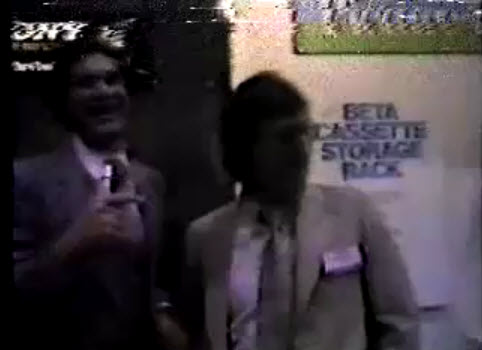The trouble with CES: too much electronics, not enough consumer

My colleague Jason Perlow is taking bets that CES will disappear by 2015. I think, in Vegas sports-book terms, that that's an even-money proposition. It's certainly not a good sign when the organization's Washington, D.C.-based Senior Vice President of Industry Affairs, a presumably well-paid executive with a staff of 40, shows up in my Talkback section to argue with my decision not to attend next year's show.
So what's the problem with CES?
The Consumer Electronics Association has put on the Consumer Electronics Show for decades. Of this I am sure, because I attended my first CES in 1979.
Back then, it was all about the gear. That word in the middle, electronics, accurately described what I remember seeing in aisle after aisle: TVs and car audio systems and amplifiers and monster hi-fi speakers and tape cassettes and laser discs and cables and connectors.
Those pieces of gear defined the experience. Bigger woofers, more watts, the more outputs the better.
And the show was also about distribution. Manufacturers had to find retail outlets for their gear, which had to be stocked and sold in brick-and-mortar stores.
I found this video clip, from a low-budget cable show, that accurately portrays what CES was like in 1981. It's like a time capsule of failed video formats. I've started the clip at about 3:17 in, where the host interviews a Sony representative who insists that the Beta format " has made a very strong comeback". (He also brags about Sony's arsenal of patents. Some things never change.)
Keep watching to see a demo of the truly craptastic RCA Selectavision player, which used grooved vinyl disks to play video:
(I actually had a review unit of that RCA player way back when. Frightening.)
The golden era of CES lasted until shortly after the turn of the century, when electronics began to get considerably simpler. It's no coincidence that Apple introduced the iPod right around that time.
The organization that runs CES hit the jackpot in 2004, when Comdex, the big computer trade show, suddenly folded. That gave computer manufacturers (many of whom were divisions of consumer electronics companies like Sony and Toshiba) a logical alternative. That sudden influx of exhibitors in turn gave CES a midlife kicker, which is only now beginning to fizzle.
The trouble with CES today is twofold:
First, all that hardware, the electronics, is only one piece in what has become a world of complex end-to-end experiences. You can't just buy a bunch of gear and hook it all together anymore to get a decent entertainment experience. You need software (an operating system and an apps ecosystem), services (which can be sabotaged by content owners), and network connectivity (which is under the control of cable and telephone companies and mobile carriers, who have business interests that are often out of alignment with their so-called partners).
Second, there's the retail chain, which is collapsing as businesses leverage the web to sell direct to consumers—or at least to cut out multiple layers of distribution.
Today, consumers can get most of the information about new gear from a company's website and from online reports. And if they choose to buy, they can do an end run around all those physical retailers and buy direct or from a large online retailer that doesn't have to stock inventory in a network of B&M stores.
This year, CES reported record attendance, its third up year in a row after hitting a disastrous low in 2009.
But I don't believe that upward trend will continue. Microsoft is pulling out of CES next year. Dell and HP and Acer, three of the world's largest PC makers, didn't have booths this year (HP had a small group of tables and some top execs at the independent ShowStoppers event). Amazon, which makes the phenomenally successful Kindle—a consumer electronics device if ever there was one—doesn't exhibit at CES. Apple has succeeded as a consumer electronics company despite never exhibiting at CES. [Update: A CES person points out that Apple Computer exhibited at CES long ago, most recently in 1994. But Apple the consumer electronics company, which removed the word Computer from its name years ago, has been conspicuously absent. The same spokesperson notes that Amazon had two meeting rooms this year. I don't consider those private meeting rooms, where the company was interviewing developers, to be "exhibits" in the sense that most people would use that word.]
Apple, Google, and Microsoft have developer focused events and product launches built around their own launch cycles, and many big companies have learned that staging launch events outside of the CES bubble is a better way to get publicity.
Frankly, CES is no longer a place where real innovation appears. Instead, it's become an aggregator of gadgets and hardware, with a smattering of other tech news in the mix. Its sheer size makes it economically worthwhile for sites like CNET and the Verge to send armies of correspondents to cover every device, no matter how small or repetitious. But don't mistake volume for news value.
I wish someone would step up and challenge CES with a new show that focuses on technology, the full ecosystem of hardware and software and services, instead of just gear. It would probably be smaller, but it could certainly be valuable.
And if they scheduled it in a charming city in May or September instead of the hellhole that is Vegas in January?
Hey, sign me up.
